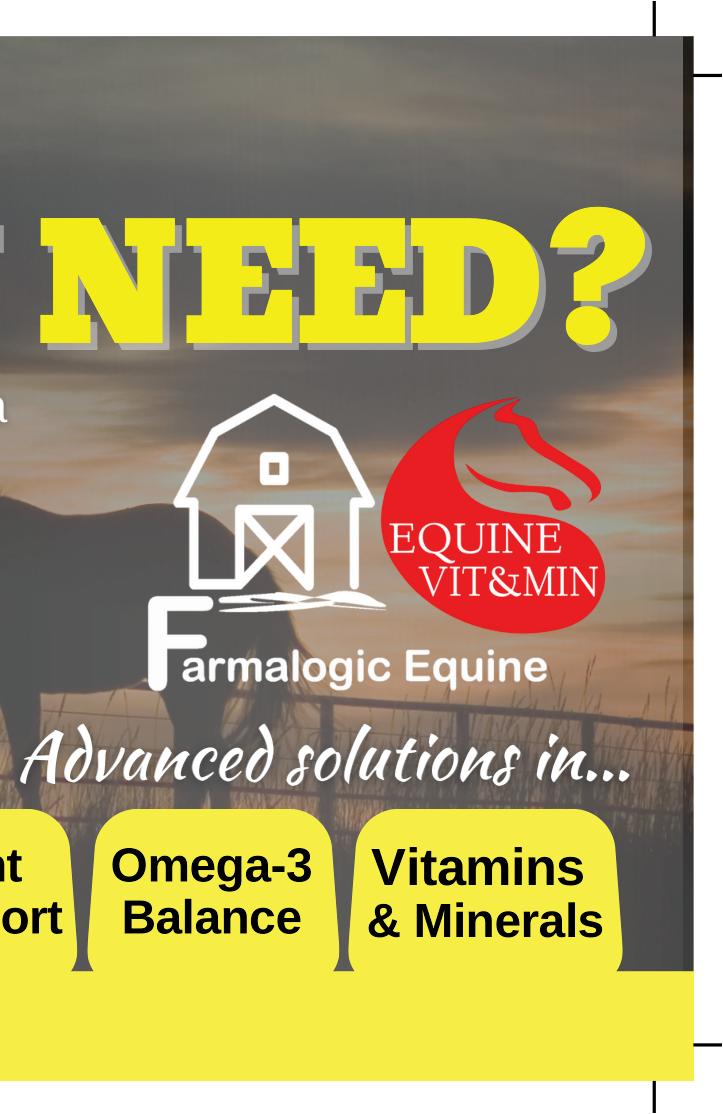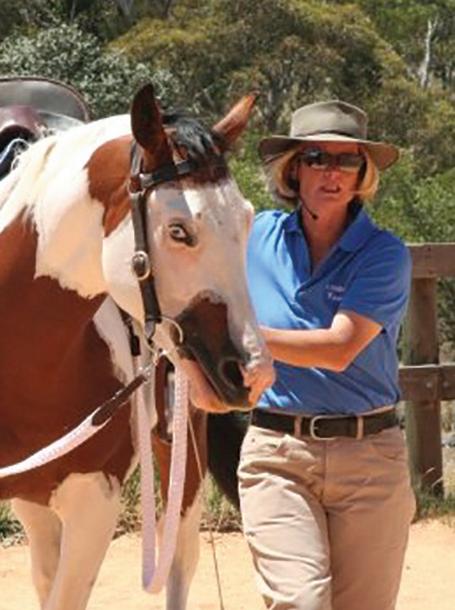3 minute read
The Horse Report Feeding and putting weight on the hard keeper
Next Article
By LARISSA BILSTON, BAgrSc (Hons 1), Animal Nutritionist, Farmalogic
Do you have one of those horses that is hard to keep weight on?
One who seems to eat twice as much than anyone else's horse, but still shows too much rib and loses weight in winter, at competitions or when upset?
Nutritionists refer to horses like this as hard keepers. Most of the time, these horses have a 'fast metabolism' compared to average but there are some common health problems to look out for as well.
An underweight horse with a poor appetite doesn't just look unhealthy, he or she will underperform due a lack of energy to work, will fatigue more easily and be vulnerable to injury and disease.
If you have trouble keeping weight on your horse, it's important to understand why, and then tweak the diet to ensure you provide everything your horse needs.
Begin by ruling out any medical issues then assess your horse's comfort in his or her social situation and living environment.
Are there any health, environmental or social issues affecting your horse?

1. First of all, work with a professional to make sure your horse's teeth, mouth and gums are healthy and able to efficiently chew feed and forage.
2. Ensure your horse is not carrying an internal parasite burden: ask your vet for the best worming protocol suited to your horse.
3. Are there any underlying health or lameness issues? Pain or difficulty moving can interfere with a horse's desire and ability to access food.
4. Does the horse have gastric ulcers which cause pain and reduced appetite?
5. Have medications, stress or trauma disrupted the gut microbiome, thereby reducing the horse's ability to efficiently digest and obtain all the nutrients available from forage?
6. Is your horse burning too many calories keeping warm? Providing shelter or rugs during cold weather conserves energy that can be used for weight gain.
7. Feed your horse in a time and place where he or she can relax and eat without distraction. If another member of the herd has a tendency to 'steal' food, ensure your hard keeper is separated at mealtimes.
What makes hard keepers different? Hard keepers need more calories to fuel their bodies than an average or 'easy keeper' horse. It's an individual trait, but more frequently seen in horses with thoroughbred breeding.
Some older horses become hard keepers as their digestive efficiency declines with age. Hard keepers may also be more active than average - they move around more at rest in their yard or paddock.
During work they may be more forward moving or even 'hot' in temperament thus burning more calories when in work or play. This means that they need to consume a more calorie-rich diet than a less active horse.
Some hard keepers tend to be more sensitive to 'stressors' in the environment, carrying the physiological effects of mild chronic stress and potentially leading to a decline in health. Mild stressors may include:
* confinement to a stable or small yard
* isolation from other horses
* conflict in the social structure of the herd
* inability to graze
* a heavy workload.
Major stressors usually create a sudden behavioural change or physical injury. Major stressors include trauma, extended transport, severe fright or anxiety and can cause an acute stress response. Although horses with chronic stress often appear outwardly calm, their internal organs react automatically, causing gut muscles to cramp or spasm, causing bloat, diarrhea, and a slower rate of passage of food through the digestive tract.
Stress reduces the efficiency of digestion, weakens the cells in the intestinal mucosa (leaky gut) and impacts on the gut microbial population. This further reduces digestive efficiency, gut acidity, vitamin availability, and immune function often leading to further weight loss. Stress or hard work can leave the body short of the antioxidants needed to prevent free radicals from causing tissue damage in muscles, airways and gut linings.
Feeding additional antioxidants including organic selenium and vitamins C and E before and after stressful events reduces the impact of oxidative stress and aids recovery. Scientific trials clearly show that supplementation with a specific strain of live yeast (Saccharomyces cerevisiae) reduces the impact of stress on gut microbial populations and reduces the levels of stress hormones measured in the blood.
It does this by helping to maintain the natural diversity of the microbiome which stabilizes hindgut pH, removing a common cause of gut pain and vitamin B deficiency. Keeping weight on a hard keeper requires a combination of managing the horse's environment to reduce stressors where possible, providing the right nutrition, and using nutraceuticals to support gut health











